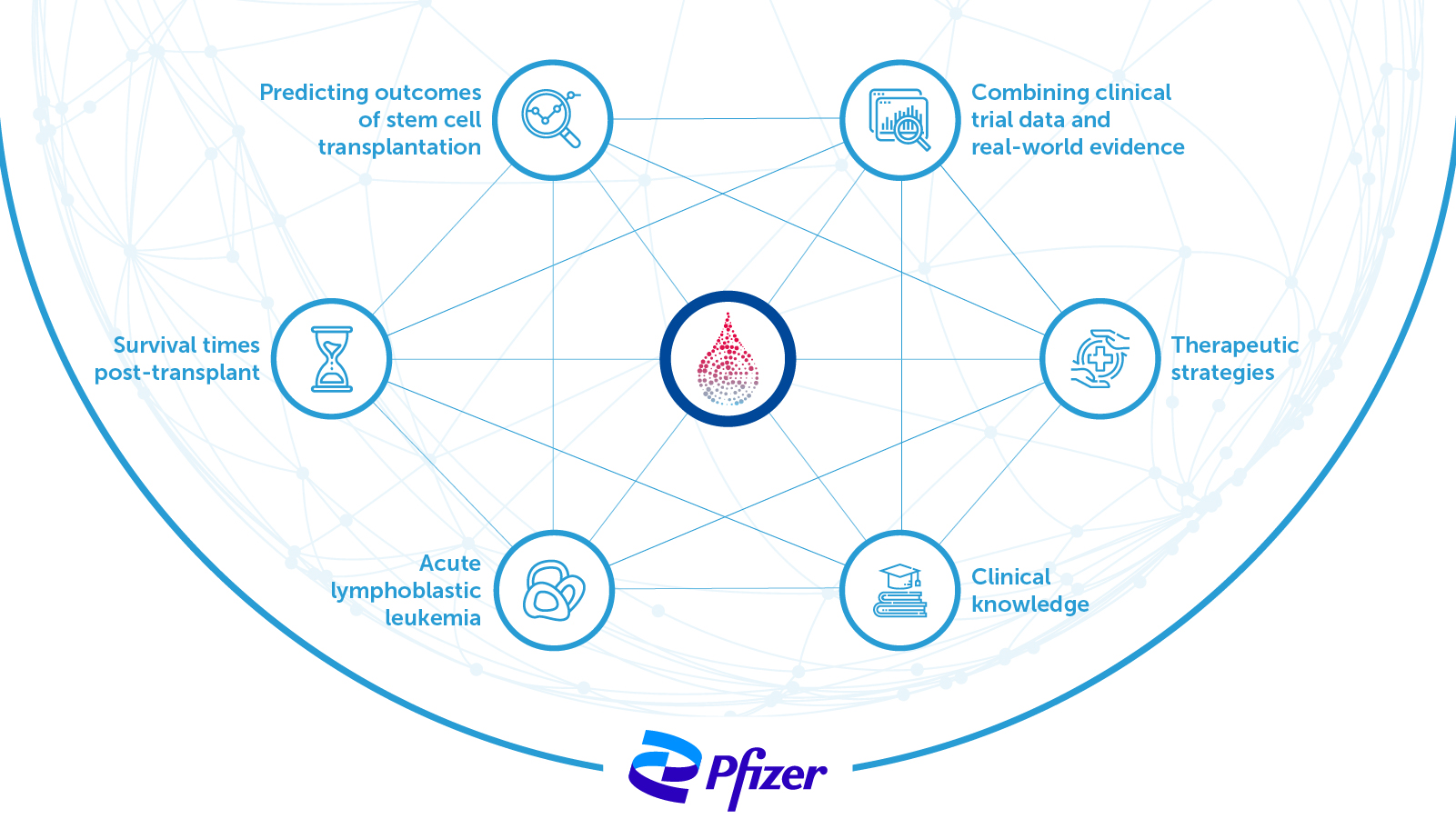Home> Research Projects> ALL-4: Harnessing the Power of Big Data to Predict Outcomes Post-Stem Cell Transplant in Adult R/R ALL
Stem cell transplant (SCT) is a key approach to treating acute lymphoblastic leukemia (ALL) but estimating and predicting survival and other outcomes post-SCT remains difficult, particularly for patients with relapsed/refractory (R/R) disease. Current datasets are sporadic and variable, tend to focus on de novo rather than R/R ALL and often contain clinical information that is decades old.

Relapsed/refractory (R/R) disease is an unfortunate reality in the daily clinical management of adults with adult lymphoblastic leukemia (ALL). R/R ALL can prove challenging to treat and is often associated with poor outcomes. Stem cell transplantation (SCT) is a common treatment goal for R/R ALL patients and offers the potential of a ‘functional cure’, assuming patients can survive the years immediately after transplantation.
Currently, it is difficult for treating physicians to accurately estimate outcomes for adult R/R ALL patients who undergo SCT. Little is also known about key baseline factors that may influence prognosis for these patients post-SCT. These gaps in understanding are due to limitations in the available literature evidence. Current datasets on post-SCT outcomes are sporadic and variable, often contain outdated information and typically focus on patients with de novo, rather than R/R ALL. Overall, this makes it difficult for clinicians to understand the prognosis of R/R disease and to predict what future years post-SCT might look like for patients.
This project will harness the power of the HARMONY BigData Platform to explore outcomes in adult R/R ALL patients after SCT and fill current gaps in clinical knowledge. HARMONY provides the unparalleled opportunity to pool information from both clinical trials and real-world sources, thereby strengthening the robustness of the data and enabling survival and other outcomes post-SCT to be estimated accurately. The study will collect and collate data within HARMONY for all R/R ALL patients who received SCT across Phase 2, 3 or 4 clinical trials or as part of real-world data registries or studies. The primary aim is to establish the landmark overall survival for R/R ALL patients 1 year after SCT. The study will also look comparatively at subgroups within the cohort to identify factors correlated with outcomes post-SCT. Particular interest is in identifying prognostic or predictive features pre-SCT – such as age, Philadelphia chromosome status, type and number of prior induction regimens, comorbidities, performance status and minimal residual disease (MRD) negativity – that may influence survival, or lead to potentially fatal adverse events after transplant. The hypothesis is that younger patients who have received fewer prior salvage regimens and those that embark on SCT with MRD negativity will have better treatment outcomes. There is no set number of subjects for this study but certain key baseline data available must be available in order for patients to be included.
By combining up-to-date clinical trial data and real-world evidence, this study aims to provide transplanters worldwide with an accurate picture of post-SCT outcomes for their adult ALL patients with R/R disease. It will also shed light on any key clinical factors that can help to predict individual patient prognosis post-SCT. Results will be equally important in shaping the design of future prospective clinical trials comparing new treatment modalities for ALL with SCT. The ultimate hope is that this research will lead to the development of better therapeutic strategies for adults with R/R ALL, where significant unmet management needs still exist.